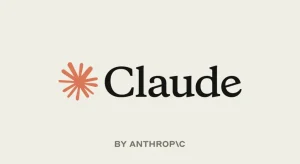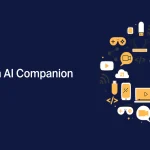Introduction
In the rapidly evolving landscape of artificial intelligence, conversational AI models have become pivotal in shaping our interactions with technology. Among the leaders in this domain is Claude, developed by Anthropic. With the recent release of Claude 3.5, this AI language model has taken significant strides in enhancing user experience through more natural and nuanced conversations. This article delves into the features and advancements of Claude, its impact on AI technology, and its potential future applications.
Evolution of Claude
Claude 1.0: The Foundation
Claude, named after Claude Shannon, the father of information theory, was initially designed to address the limitations of existing conversational AI models. The first iteration of Claude aimed to create more coherent and contextually relevant responses. This foundation was crucial in setting the stage for subsequent versions, which built upon these initial capabilities with advanced techniques and larger datasets.
Claude 2.0: Improved Understanding
With Claude 2.0, the focus shifted to improving the model’s understanding of context and nuance. This version introduced more sophisticated algorithms that allowed Claude to grasp the subtleties of human language better. As a result, conversations with Claude 2.0 became more fluid and natural, reducing the instances of irrelevant or awkward responses that often plagued earlier AI models.
Claude 3.0: Bridging Gaps
Claude 3.0 represented a significant milestone in the evolution of conversational AI. This version integrated deeper learning techniques and expanded the training dataset to include a broader range of conversational scenarios. The result was a model capable of handling more diverse and complex interactions, bridging the gap between human and AI communication.
The Leap to Claude 3.5
Enhanced Natural Language Processing
Claude 3.5 represents a significant leap in the capabilities of conversational AI. One of the standout features of this version is its enhanced natural language processing (NLP) abilities. Utilizing state-of-the-art NLP techniques, Claude 3.5 can understand and generate text that closely mimics human conversation. This improvement is not just about understanding words but also about grasping the underlying intent and emotions behind them. This level of understanding is crucial for creating more meaningful and engaging interactions.
Contextual Awareness and Memory
Another major advancement in Claude 3.5 is its improved contextual awareness and memory. Unlike its predecessors, Claude 3.5 can remember past interactions and use that information to provide more relevant responses in future conversations. This feature is particularly useful in applications where maintaining context over long interactions is crucial, such as customer support and virtual assistants. By retaining the context of previous conversations, Claude 3.5 can offer more personalized and accurate responses, enhancing the overall user experience.
Ethical Considerations and Safety
Anthropic has placed a strong emphasis on the ethical implications of AI development. Claude 3.5 incorporates safety measures to minimize the risk of generating harmful or biased content. These measures are part of Anthropic’s broader commitment to creating AI systems that are not only powerful but also aligned with human values and ethical standards. The ethical framework guiding Claude’s development ensures that the AI adheres to principles of fairness, transparency, and accountability, making it a trustworthy tool for various applications.
Impact and Applications
Transforming Customer Support
One of the most promising applications of Claude 3.5 is in the realm of customer support. Its ability to understand and respond to customer queries with high accuracy can significantly enhance the customer experience. Businesses can leverage Claude 3.5 to provide round-the-clock support, handle a higher volume of queries, and reduce response times. By automating routine inquiries and providing consistent, high-quality responses, Claude 3.5 allows human agents to focus on more complex and value-added tasks, improving overall efficiency.
Advancements in Virtual Assistants
Virtual assistants powered by Claude 3.5 can offer more personalized and context-aware assistance. Whether it’s scheduling appointments, providing recommendations, or answering complex questions, the improved capabilities of Claude 3.5 make these tasks more efficient and user-friendly. The enhanced contextual memory allows virtual assistants to maintain continuity in conversations, making interactions feel more natural and intuitive.
Potential in Education
In the education sector, Claude 3.5 can serve as a valuable tool for both students and educators. It can assist in creating interactive learning experiences, provide instant feedback on assignments, and offer personalized tutoring based on individual student needs. By leveraging Claude 3.5’s advanced NLP capabilities, educational platforms can deliver more engaging and adaptive learning experiences, catering to diverse learning styles and preferences.
Healthcare Applications
The healthcare industry stands to benefit significantly from the advancements in Claude 3.5. By integrating this conversational AI into telemedicine platforms, healthcare providers can offer more accessible and responsive patient care. Claude 3.5 can assist in triaging patient queries, providing preliminary diagnoses, and offering information on treatment options. This not only enhances patient engagement but also helps streamline healthcare workflows, reducing the burden on medical professionals.
Future Prospects
Continuous Learning and Adaptation
The future of Claude lies in its ability to continuously learn and adapt. As the model interacts with more users and encounters diverse scenarios, it will refine its understanding and improve its responses. This continuous learning process is essential for keeping the AI relevant and effective in an ever-changing technological landscape.
Expanding Multilingual Capabilities
To cater to a global audience, future iterations of Claude are expected to expand their multilingual capabilities. By supporting a wider range of languages and dialects, Claude can provide more inclusive and accessible conversational experiences, breaking down language barriers and fostering cross-cultural communication.
Integration with Emerging Technologies
Claude’s integration with emerging technologies such as augmented reality (AR) and virtual reality (VR) holds exciting possibilities. By combining conversational artificial intelligence with immersive environments, users can engage in more interactive and dynamic experiences. This integration could revolutionize industries such as gaming, entertainment, and training, offering new ways to interact with technology.
Conclusion
Claude 3.5 stands at the forefront of conversational AI, demonstrating significant advancements in natural language processing, contextual awareness, and ethical AI development. Its impact spans various sectors, from customer support to education and healthcare, showcasing its versatility and potential. As AI technology continues to evolve, Claude 3.5 represents a critical step towards more intelligent, responsive, and ethical AI systems. Businesses and developers looking to enhance their AI capabilities should keep an eye on Claude’s ongoing development, as it promises to shape the future of human-computer interaction.
For an in-depth comparison and detailed information on various AI models, visit this link.







